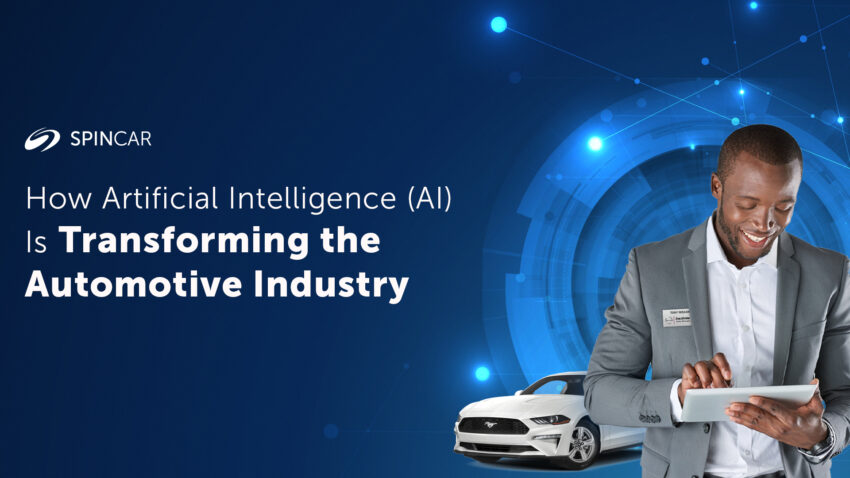
Artificial Intelligence (AI) is rapidly transforming how digital marketing is implemented for businesses small and large. With customers wanting to minimize the amount of time they spend in a store or showroom, digital buying experiences have been increasing in popularity. In a recent survey, NADA and Roadster found that 92% of consumers who recently purchased a car entirely online found the process more efficient compared to their previous purchases. Many dealerships hurried to invest in digital retailing solutions to combat the rise of digital-only giants. However, without utilizing AI to assist in BDC efforts, checkout rates remain dismally low. To build stronger online shopper engagement that results in higher purchase rates, dealers need to effectively employ next-generation AI, which can provide a richer and more consistent shopper experience across every touchpoint while increasing dealer productivity and efficiency.
What is Artificial Intelligence?
Artificial Intelligence is the mechanization of human thought or behavior. To put it more simply, it is using a computer to replicate human thought processes. There are four main pillars of AI: learning, reasoning, problem-solving, and language.
• Learning – More specifically, machine learning (ML), is when the machine becomes smarter and self-improves as it ingests more data and runs more cycles
• Reasoning – Using a computer to intelligently weigh the pros and cons of a particular decision
• Problem Solving – Utilizing a multi-computational process that requires critical thought to search for solutions
• Using Language – Through Natural Language Processing (NLP), enabling computers the ability to understand and communicate with humans in a natural manner
The most powerful of these pillars in the digital showroom is NLP. This element of AI allows the computer to understand a customers’ questions and respond to them in a natural, conversational manner. By utilizing AI solutions that feature NLP, prospective buyers get automated, natural language responses to their questions in real-time, allowing a digital sales team to move the sales process forward at any time, day or night.
AI is Transforming the Automotive Industry
Digital retailing in the automotive industry has failed to meet the consumer’s need for an immediate response to their inquiries in a personalized manner. Most dealerships have resource constraints and cannot respond to individual consumer questions 24 hours a day, seven days a week. While many vehicle sellers have invested in automated solutions, the vast majority are lead autoresponders with very limited answers, conversational capability, responsiveness, or integration with dealership CRMs. This is where more sophisticated AI technology with robust NLP and integration capabilities can help. Conversational AI can more thoroughly and naturally answer many shopper questions regarding inventory, trade-in, availability, and other details, keeping the shopper moving through the sales funnel while freeing up BDC and internet sales capability for higher-order activities.
While integrating AI is imperative to BDC success in the new omnichannel 24/7 reality, it is not without potential challenges. Not all AI systems are created equal. Many AI solutions may claim to have NLP. However, the most sophisticated systems utilize machine learning and advanced algorithms to create superior conversational AI solutions. This allows for more effective and efficient lead management and nurturing, which results in higher conversions and sales.
Dealers invest substantially in effective CRM systems as a strategic and operational priority. Implementing a new AI solution that integrates seamlessly with their current CRM is an important consideration. The most robust AI solutions are capable of integrating not only with the dealership’s inventory feed, but also with their content library and other digital engagement tools.
Integrating a new AI solution into a dealership’s BDC efforts can be exceptionally rewarding. By researching and adding the most sophisticated AI system to their BDC, dealerships can better utilize their existing staff and resources, while driving additional sales.
Stay tuned to learn how Impel’s Sales AI can dramatically increase sales! If you’d like to learn more about AI and its applications, you can read our latest white paper.
Sources:
https://go.roadster.com/dealer-impact-study-3.0

